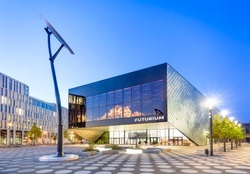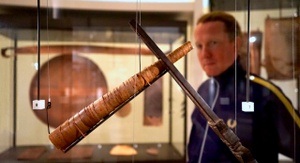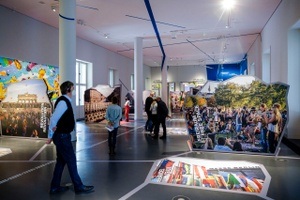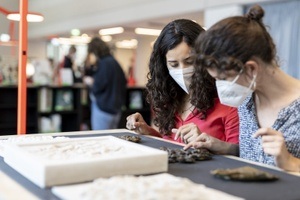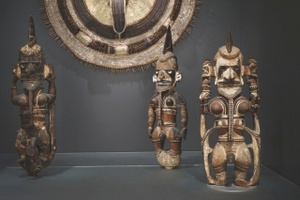Wettlauf in die Zukunft – Kritische Rohstoffe für Deutschland
In the organizer's words:
The global hunger for raw materials is growing. For future technologies and the green transformation, we sometimes need different raw materials than before - and in larger quantities. However, mining projects, especially in the Global South, often entail ecological and social risks. A "clean" energy transition in Germany is only possible if the raw materials are also mined "cleanly". We will discuss with you how Germany and the EU can secure the supply of raw materials and at the same time establish responsible supply chains that benefit the people in the mining countries.
The economic and political importance of so-called critical raw materials is huge. An electric car, for example, contains up to three kilograms of rare metals, as well as an average of 66 kilograms of graphite, 53 kilograms of copper and 13 kilograms of cobalt. The raw materials mostly come from just a few countries in Asia, Africa or Latin America. Global competition has long since flared up. Germany is also dependent on imports of these raw materials.
Not only the extraction, but also the production and processing of the raw materials are concentrated in just a few countries. For example, 87 percent of imported photovoltaic systems come from an Asian country. This creates new dependencies, which are exacerbated by trade conflicts and political tensions. In short, supply is limited, demand is high and supply chains are potentially susceptible to disruption. Debates on how to diversify raw material supply chains and develop alternative sources of supply are therefore becoming increasingly intense.
At the same time, it is important to avoid ecological and social "collateral damage" during extraction, such as groundwater contamination or child labor. In order to successfully compete for these raw materials, German and European companies must be attractive partners. This has long included making fair and sustainable offers to countries rich in raw materials.
We will discuss with you what Germany and the EU need raw materials for, where they (can) come from and why the current geopolitical situation is particularly tense in this respect. We will also look at the perspective of resource-rich countries in the Global South and ask how our trade relations can support economic, social and ecological development worldwide.
In cooperation with the German Institute for International and Security Affairs (SWP) and the United Nations Industrial Development Organization (Unido)
Guests
- Dr. Melanie Müller, German Institute for International and Security Affairs (SWP)
- Dr. Olaf Deutschbein, Head of the United Nations Industrial Development Organization (Unido) in Berlin
Event information
- Venue: Forum
- Admission: free of charge
- Registration is required. Remaining tickets are available on site.
- Event language: German, English
- The event will be recorded. The video will be available on our YouTube channel.
Accessibility
- An induction loop system is available.
- We will leave seats free if you wish to sit close to the stage due to visual impairments.
- People with visual impairments are welcome. We will ask for guide assistance if you need it.
- We are a wheelchair accessible venue.
- Seats without seating are available for wheelchair users.
- The event is aimed at interested parties aged 16 and over.
- Conditions of participation: no previous knowledge required
- Drinks and food can be purchased.
The future is for everyone! The Futurium wants to be accessible to everyone. If you have any other access needs, please let us know. We will try to fulfill them: info@futurium.de
Here you can find all information about accessibility.
Photo & Video
Photos and videos will be taken during the event. If you do not wish to be photographed, please let us know in advance.
Tickets
You will need a ticket for this event. Click here to go to the ticket store.
This content has been machine translated.


